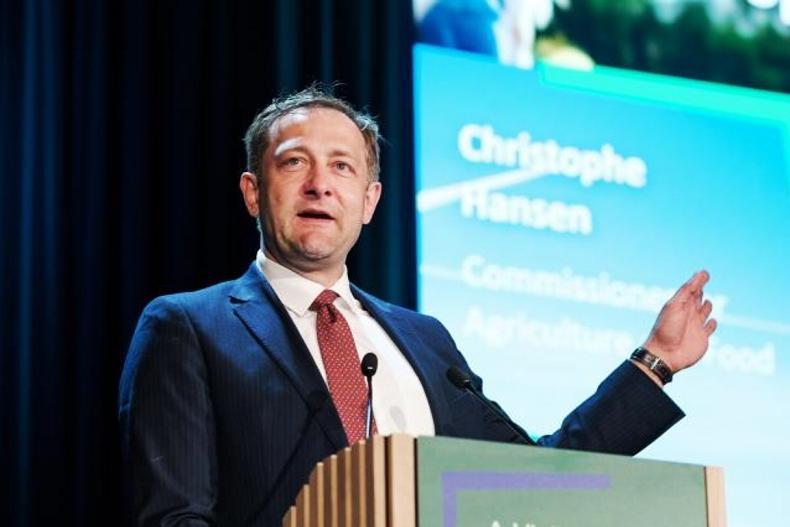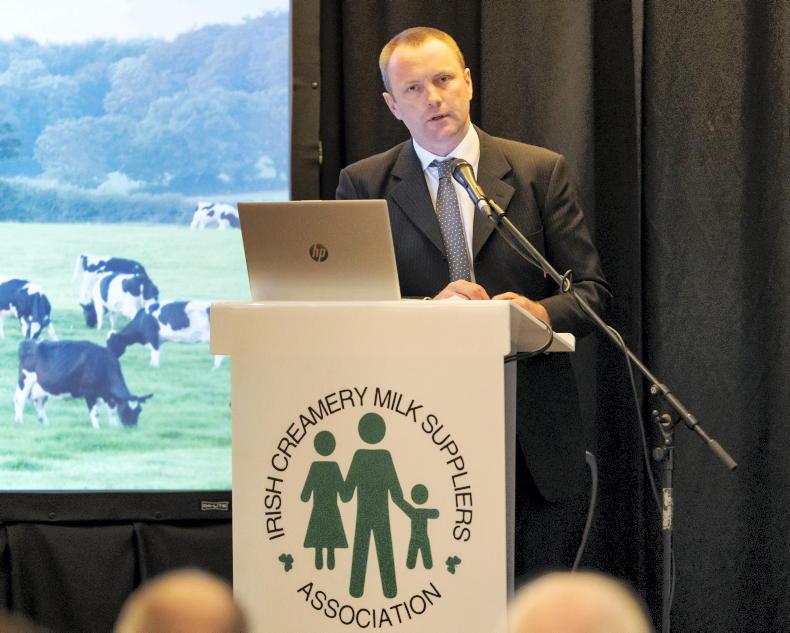The CEO of the Irish Co-operation Organisation Society (ICOS) TJ Flanagan has said that banks must bear significant responsibility for farmers who find themselves with large amounts of their milk supplies tied up in fixed milk price contracts.
“The greatest single driver for the high level of adoption of fixed milk price schemes was pressure from financial institutions.
“Certainly the farmers that have been talking to us, who have expanded fairly substantially and were fairly heavily leveraged, were put under fairly significant pressure by the banks to de-risk the lending,” he said.
The Oireachtas Committee on Agriculture met on Wednesday 13 April to discuss the number of dairy farmers contracted into fixed milk price contracts, which are, in some cases, up to 15c/l lower than the current variable milk price being offered by co-ops.
“I think it’s probably unfair that the banks wouldn’t be in here to be part of the solution, in terms that those were the ones who drove the adoption of these schemes,” Flanagan said.
He added that the biggest concern for the farmers, who find themselves in a cost-price squeeze as a result of being tied into these contracts, is bank repayments.
“Certainly the bank can be part of the solution on this one as well,” he said.
ICOS dairy chair John O’Gorman said: “Members who were in a post-quota era found themselves going to banks to finance expansion at farm level and we are finding that these are the people that are most exposed.
“They came to the co-ops saying we need a price volatility tool.”
Tim Lombard, a member of the committee, asked if there should be a regulation on the amount of milk a farmer locks into the contracts.
“This is a business agreement between two partners; a farmer who has particular priorities and interest, depending on how much money they have borrowed and how much repayments they have to make and then maybe another farmer who isn’t very heavily leveraged and is happy to ride the markets,” O’Gorman said.
O’Gorman argued that these were voluntary contracts that farmers entered into themselves and no body from the co-op perspective pushed farmers into them.
However, he said that if farmers do demand fixed milk contracts going forward, and if they do have to have a future, there needs to be some sort of “margin protection mechanism” built into them.
“They’ve been in place for the last 11 years and until this sequence of extraordinary event happened they have been performing very well.
“The prices people were achieving in fixed price contracts, if you look at it over the spread of the 11 years, were certainly very attractive to farmers,” added Flanagan.
Michael Fitzmaurice, another member of the joint Oireachtas committee, said that this issue is a small amount of money for the co-ops but a big amount of money for the individual farmer.
“It could be the making or breaking of them and in my opinion ye [ICOS] need to move on that,” he said.









SHARING OPTIONS